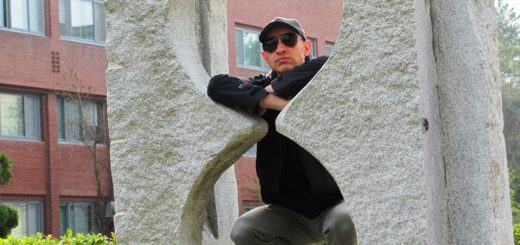When Freedom is “Above My Pay Grade”
In my recent “Reflections On Independence,” I noted that modern man, as a mechanism of soft despotism, has gradually been convinced, or rather conveniently allowed himself to be convinced, to judge important decisions, particularly those regarding the wellbeing of society as a whole — the sort of decisions that once formed the very core of the republican idea of self-government — as being “above our pay grade,” such that the state ought to have the authority to make those decisions coercively on our behalf. In response to an e-mail assent to this point from a dear American friend, I feel the urge to complete the thought with a follow-up observation.
First of all, the very notion that the state ought to be granted the authority to make decisions that we, the lowly citizens, are not knowledgeable or objective enough to make, flies in the face of the modern conception of the state as a manifestation of the right of self-government. Of course, having entrusted a government with certain powers that may best be undertaken in a collective fashion — war, the enactment and enforcement of laws — we must assume some measure of competence from our officials in handling those situations, trusting that our elected representatives are listening to knowledgeable advisors. But that this basic granting of powers may be extended by the state, on its own authority, to the status of a blank slate on the exercise of all conceivable powers, is obviously an abuse of the “public trust” sense of the state entailed by representative government.
For example, a self-governing people grants its representatives certain powers to curtail or limit the normal freedom of association or of private action in emergency conditions, such as during an enemy attack or largescale domestic unrest. Such conditions will necessarily and naturally be short-term, and clearly definable relative to a specific threat to the maintenance of the system of government or basic social functioning — that is, this emergency power is conditioned primarily upon the presence of immediate threats to the survival of the institutions of self-government as such.
Under no circumstances, then, would it seem to fall within the range of legitimate authority, in a state founded on principles of individual self-government, to institute fundamental restrictions on freedom of association and private action in a manner or context that is open-ended, fluid, and utterly at the idiosyncratic discretion of the current government and its “experts,” in response to a social situation that in no way represents any kind of threat, immediate or long-term, to the safety or maintenance of either the political system or the social institutions of a self-governing population that the state is charged with representing and upholding. Needless to say, this qualification places extensions of state power along the lines of arbitrary and indefinite “lockdowns,” or mandates on private behavior and even face coverings, in a context which self-evidently represents no threat whatsoever to the maintenance of the institutions necessary for a self-governing society, as very far outside the legitimate role of the state in anything approximating a free republic.
And this in turn indicates that a society that remains largely sanguine, or at least tolerant, of such outrageous extensions of state power, on the implicit grounds that “the government has experts who know a lot about viruses and how they spread,” has relinquished its legitimate claim to being a self-governing people.
“That’s above my pay grade,” as the mass of men say so easily these days, is the self-demeaning sentiment of a society asking for chains — asking to be locked down, as we have all gotten so used to saying, as though it were the most casual thing in the world. And, power lust and human nature being what they are, a society that asks for chains is sure to get them, in short order.



